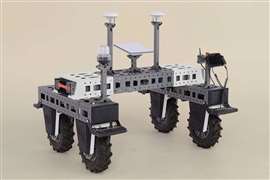Read this article in Français Deutsch Italiano Português Español
Street Smarts: CARB’s comeuppance
25 August 2025
CARB and EPA are paying a heavy price for indifference to concerns about tough truck emissions regs
I’m sorry but I’m having a hard time mustering up much sympathy for the environmental regulators at the California Air Resources Board (CARB) and U.S.
POWER SOURCING GUIDE
The trusted reference and buyer’s guide for 83 years
The original “desktop search engine,” guiding nearly 10,000 users in more than 90 countries it is the primary reference for specifications and details on all the components that go into engine systems.
Visit Now
STAY CONNECTED




Receive the information you need when you need it through our world-leading magazines, newsletters and daily briefings.
CONNECT WITH THE TEAM












